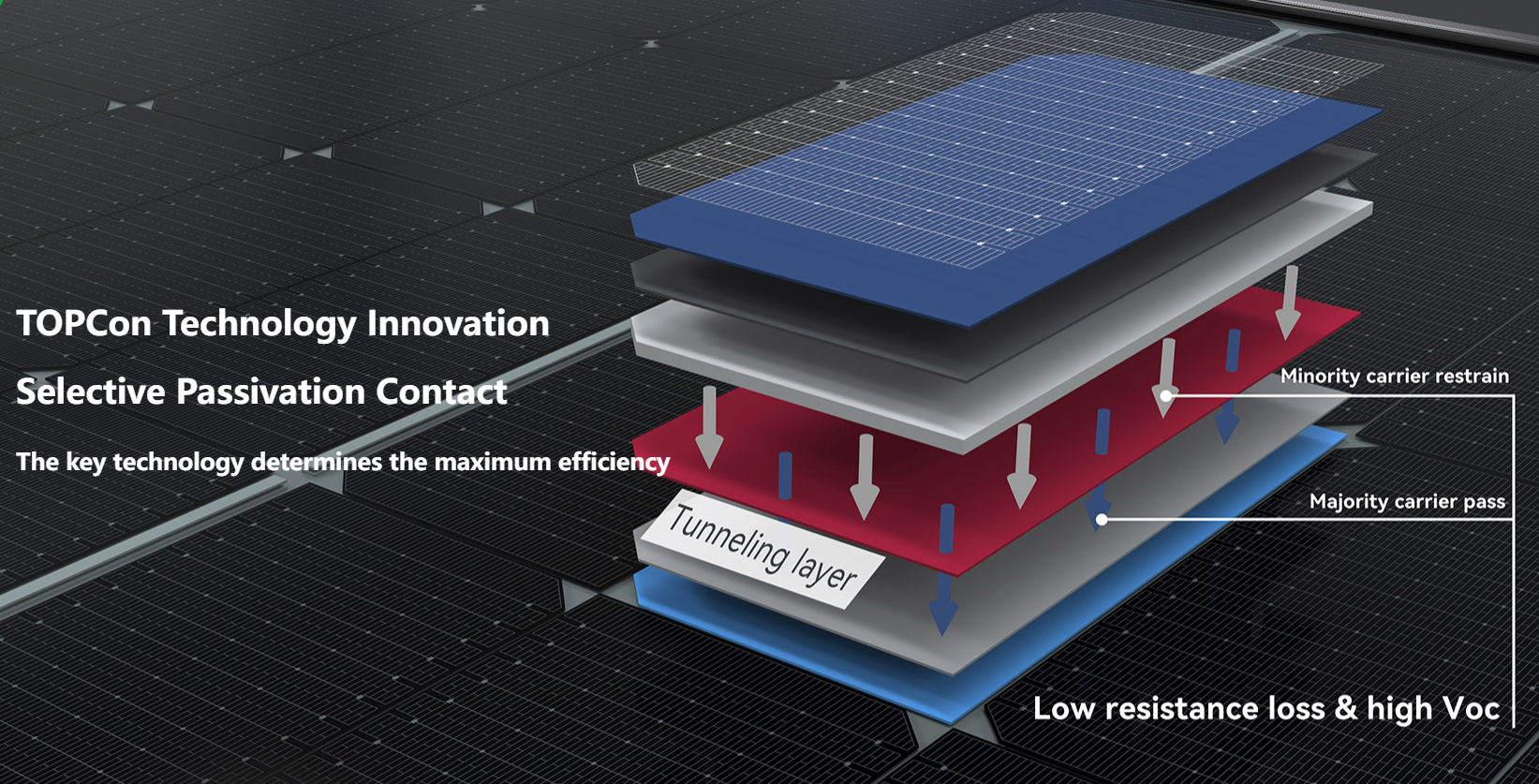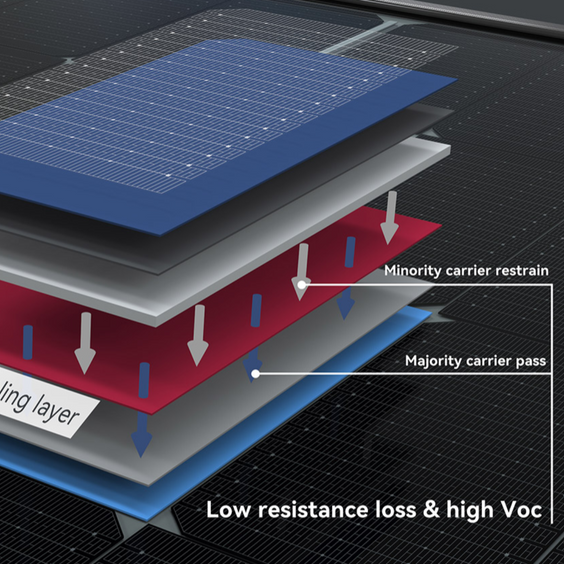Posted by Nastech on 19th Feb 2023
What is a "N-Type TOPCon PV Module"?
N-type TOPCon (Tunnel Oxide Passivated Contact) solar photovoltaic (PV) modules are a type of high-performance solar panel that use innovative technology to increase efficiency and output.
The N-type TOPCon technology uses a thin layer of insulating material, called a tunnel oxide layer, to passivate the contacts on the front and back sides of the solar cell, which reduces recombination losses and increases power output. This technology also allows for a better distribution of the electric field in the solar cell, which further increases its efficiency.
TOPCon technology is combined with N-type solar cells which have higher conversion efficiency compared to P-type solar cells. N-type solar cells are made with different materials than the traditional P-type solar cells, and have a higher purity, better light capture ability, and lower degradation rates over time.
The combination of N-type solar cells and TOPCon technology results in high-efficiency solar modules that can achieve over 23% efficiency, making them ideal for applications where space is limited and maximum power output is desired.
Diagram : Jinko Solar Tiger Neo

Here are five advantages of N-Type TOPCon Modules over P-Type modules:
- Higher efficiency: N-Type TOPCon modules have been shown to achieve higher efficiency than P-type modules. The use of N-type silicon results in lower recombination losses and reduced shading losses, leading to higher power output.
- Better temperature coefficient: N-Type TOPCon modules have a lower temperature coefficient than P-type modules, meaning their performance does not degrade as much in high temperatures. This makes them better suited for use in hot climates.
- Longer lifespan: The higher purity of the N-type silicon in TOPCon cells means that they are less prone to degradation over time. This can result in a longer lifespan for the module.
- More stable performance: The passivation layer on the surface of the N-type TOPCon cell improves stability and reduces degradation, resulting in more stable performance over the module's lifetime.
- Reduced light-induced degradation: N-Type TOPCon modules have been shown to be less prone to light-induced degradation than P-type modules. This means that their performance is more stable and less affected by exposure to sunlight.

